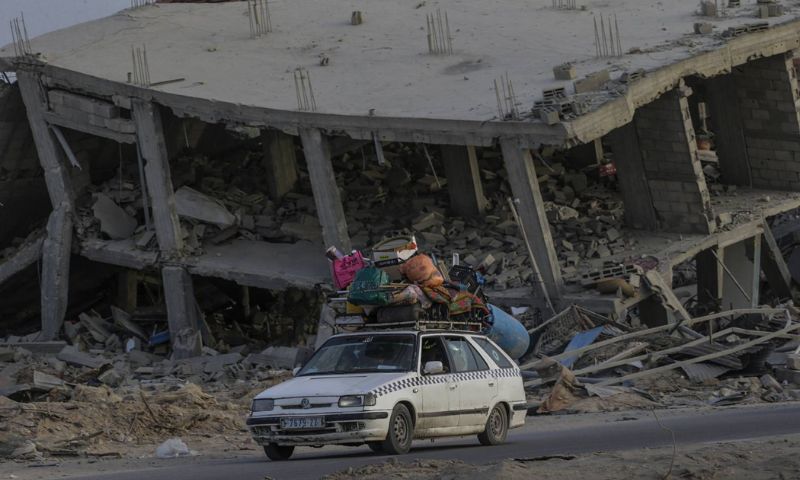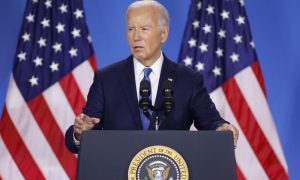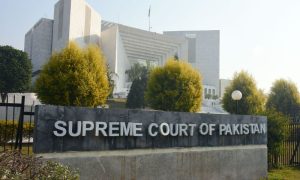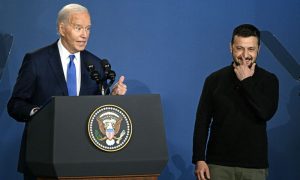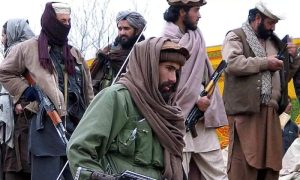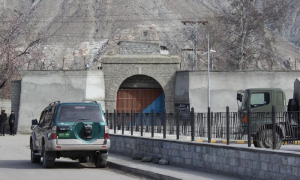RAFAH: Israel struck several areas across Gaza and continued ground operations on Sunday after UN chief Antonio Guterres urged “an immediate humanitarian ceasefire, the unconditional release of all hostages and an immediate increase in humanitarian aid” into the besieged Gaza Strip. The call for a ceasefire comes as hundreds of thousands of Palestinians flee the city of Rafah following an Israeli evacuation order.
“But a ceasefire will only be the start,” Guterres told a donor conference in Kuwait. “It will be a long road back from the devastation and trauma of this war.”
Despite mediation efforts by Egypt, Qatar, and the United States, prospects for a truce appear elusive. US President Joe Biden, while expressing optimism for a ceasefire, underscored the key role of Hamas in releasing hostages held since the October 7 attack.
Reports from AFP correspondents, witnesses, and medical personnel detail relentless Israeli airstrikes targeting northern, central, and southern Gaza. In Rafah, situated on the Egyptian border, the toll of casualties mounts, with the Kuwaiti hospital confirmed to have received bodies of “18 martyrs” slain in Israeli strikes within a 24-hour period.
Among the victims were a father and son, both doctors, who perished in an Israeli strike on Deir al-Balah in central Gaza. Recent weeks have witnessed intensified Israeli bombardment in the Jabalia refugee camp and Gaza City’s Zeitun neighborhood.
Since October 7 last year, Israel has launched a relentless bombardment campaign in Gaza killing at least 34,971 Palestinians, mostly women and children, the territory’s health ministry reported.
As Israel extends its military presence in eastern Rafah, effectively blocking key aid routes, the UN agency for Palestinian refugees, UNRWA, decries the “forced and inhumane displacement” of hundreds of thousands of Palestinians. The exodus from Rafah exacerbates the humanitarian crisis, with residents facing perilous conditions and limited safe havens within Gaza.
International condemnation mounts as Egypt refused coordination with Israel on aid deliveries via the Rafah crossing. Egypt’s state-linked Al-Qahera News cited a high-ranking source as saying Egypt had “warned Israel of the repercussions of its continued control over the Rafah crossing, and held it fully responsible for the deterioration of the humanitarian situation in the Gaza Strip”.
Concerns escalate over the deteriorating humanitarian situation, with warnings of an impending catastrophe should Israel proceed with a full-scale ground operation in Rafah. International outrage mounted at the long-threatened operation in Rafah, with Israel’s close ally the United States having paused the delivery of 3,500 bombs as it appeared ready to invade the city.
Meanwhile, pro-Palestinian protests continue globally, including outside the Eurovision Song Contest in Sweden, condemning Israel’s participation. Meanwhile, Israeli Prime Minister Benjamin Netanyahu faces mounting pressure to secure the release of remaining hostages, with protesters in Tel Aviv demanding immediate action to reach a truce and secure the release of captives.
The Israeli military on Saturday expanded an evacuation order for eastern Rafah and said 300,000 Palestinians had left the area.
The UN agency for Palestinian refugees, UNRWA, gave a similar estimate of “around 300,000 people” who have fled Rafah over the past week, decrying in a post on X the “forced and inhumane displacement of Palestinians” who have “nowhere safe to go” in Gaza.
Palestinians in Rafah, many of them displaced by the fighting elsewhere in the territory, piled water tanks, mattresses and other belongings onto vehicles and prepared to flee again.
“The artillery shelling did not stop at all” for several days, said Mohammed Hamad, 24, who has left eastern Rafah for the city’s west. “We will not move until we feel that the danger is advancing to the west,” he told AFP. “There is no safe place in Gaza where we can take refuge.”
Residents were told to go to the “humanitarian zone” of Al-Mawasi, on the coast northwest of Rafah, though aid groups have warned it was not ready for an influx of people.
EU chief Charles Michel said on social media that Rafah civilians were being ordered to “unsafe zones”, denouncing it as “unacceptable”.
Hisham Adwan, spokesman for the Gaza crossings authority, told AFP on Sunday that the Rafah crossing has remained closed since Israeli troops seized its Palestinian side on Tuesday, “preventing the entry of humanitarian aid” and the departure of patients in need of medical care.
He said Israeli forces “have advanced from the eastern border” about 2.5 kilometres (1.6 miles) into Rafah.
Guterres on Friday said Gaza risked an “epic humanitarian disaster” if Israel launched a full-scale ground operation in Rafah, where the UN says 1.4 million have been sheltering.









